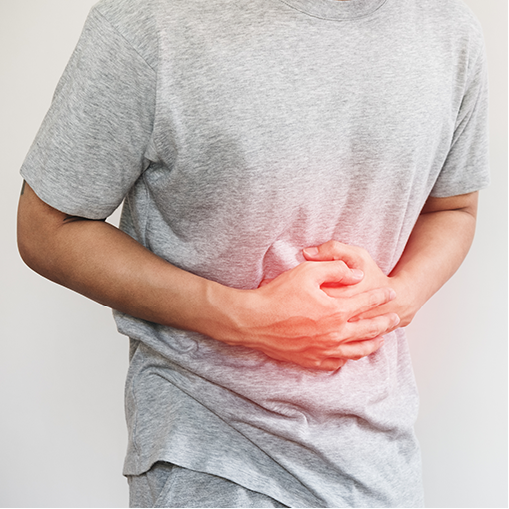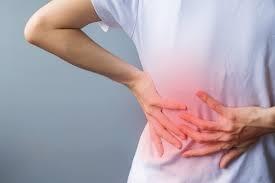Introduction
If you’ve recently been diagnosed with gallbladder polyps, you may be wondering what to do next. While most polyps are harmless, some can pose health risks and require medical attention. Understanding gallbladder polyps treatment is essential to making informed decisions about your health. This guide covers everything you need to know about treating gallbladder polyps, including causes, symptoms, and the best treatment options available.
What Are Gallbladder Polyps?
Gallbladder polyps are small growths that form on the inner wall of the gallbladder. They are usually found incidentally during imaging tests for other conditions. While most polyps are benign, some can develop into gallbladder cancer over time, making early detection and treatment crucial.
Types of Gallbladder Polyps
Gallbladder polyps are classified into different types based on their composition and potential risks:
- Cholesterol Polyps – The most common type, caused by cholesterol deposits.
- Inflammatory Polyps – Develop due to chronic inflammation of the gallbladder.
- Adenomatous Polyps – Precancerous polyps that have a higher risk of becoming malignant.
- Hyperplastic Polyps – Generally benign and do not require treatment.
- Fibrous Polyps – Composed of connective tissue and are usually non-cancerous.
Causes and Risk Factors
Several factors can contribute to the development of gallbladder polyps, including:
- High cholesterol levels leading to cholesterol polyps.
- Chronic inflammation of the gallbladder due to gallstones.
- Genetic factors that predispose individuals to polyp formation.
- Obesity and metabolic disorders like diabetes.
- Age and gender, as polyps are more common in people over 50 and in men.
Symptoms of Gallbladder Polyps
Most gallbladder polyps do not cause symptoms and are discovered during routine ultrasounds. However, larger polyps or those associated with gallstones may lead to:
- Right upper abdominal pain
- Nausea and vomiting
- Bloating and indigestion
- Jaundice (yellowing of the skin and eyes) in rare cases
Diagnosis of Gallbladder Polyps
To diagnose gallbladder polyps, doctors typically use imaging tests such as:
- Ultrasound – The most common method to detect and monitor polyps.
- CT Scan or MRI – Provides detailed imaging for further evaluation.
- Endoscopic Ultrasound (EUS) – A more advanced imaging technique used when cancer is suspected.
Gallbladder Polyps Treatment Options
1. Watchful Waiting for Small Polyps
- Polyps smaller than 10mm are usually benign and monitored regularly.
- Ultrasound check-ups every 6 to 12 months to track any growth.
2. Medications and Lifestyle Changes
- Cholesterol-lowering medications may help reduce cholesterol polyps.
- A low-fat, high-fiber diet to maintain gallbladder health.
- Regular exercise to manage cholesterol and metabolic disorders.
3. Surgical Removal (Cholecystectomy)
- Recommended for polyps larger than 10mm or those with rapid growth.
- Laparoscopic cholecystectomy (minimally invasive) is the preferred procedure.
- Open cholecystectomy is used in rare cases where cancer is suspected.
4. Alternative Treatments and Home Remedies
- Herbal supplements like milk thistle may support gallbladder health.
- Drinking plenty of water and maintaining a balanced diet can help prevent gallbladder issues.
When to Seek Medical Attention
You should consult a doctor if you experience:
- Persistent upper abdominal pain.
- Sudden worsening of symptoms like nausea and vomiting.
- Jaundice or signs of infection.
Why Choose ER of Dallas for Gallbladder Polyps Treatment?
At ER of Dallas, we provide expert diagnosis and treatment for gallbladder polyps, offering:
- State-of-the-art imaging and diagnostic tools
- 24/7 emergency care for severe symptoms
- Experienced specialists in gallbladder health
- Personalized treatment plans for your specific needs
FAQs
1. Are gallbladder polyps dangerous?
Most gallbladder polyps are benign, but larger or fast-growing polyps may have a risk of turning cancerous.
2. Can gallbladder polyps go away on their own?
Cholesterol polyps may shrink or disappear with lifestyle changes, but others typically remain unchanged.
3. How are gallbladder polyps detected?
Gallbladder polyps are usually detected through an ultrasound scan during routine check-ups.
4. Is surgery always necessary for gallbladder polyps?
No, surgery is only required for large or symptomatic polyps, or if cancer risk is present.
5. What foods should I avoid if I have gallbladder polyps?
Avoid fatty, fried, and processed foods to maintain gallbladder health and prevent complications.
Conclusion
Gallbladder polyps are common and often harmless, but they require careful monitoring and, in some cases, treatment. Whether you need regular check-ups or surgical intervention, ER of Dallas is here to provide expert care. If you have concerns about gallbladder polyps, visit us today for a consultation.
For more blogs visit trendingblogsweb.com



